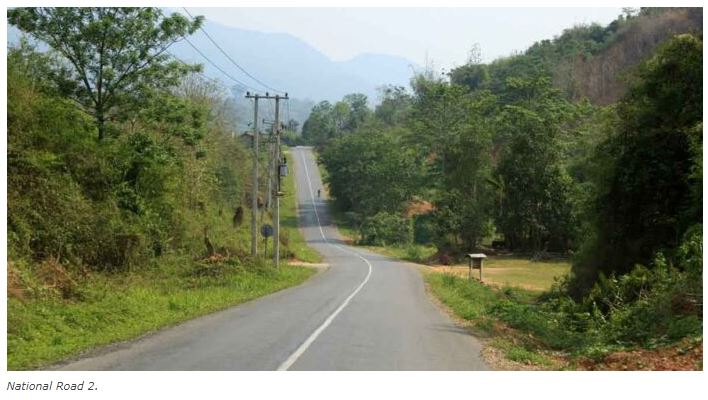Economic Corridor to Boost Regional Trade and Growth Through Laos
The Ministry of Public Works and Transport on Wednesday launched an initiative to improve transport, connectivity, climate resilience, and east-west regional trade across the north of the country.
The Southeast Asia Regional Economic Corridor and Connectivity Project is backed by World Bank financing and is designed to help people in the northern provinces benefit from expanding regional trade and transport connections.
The project was designed to complement the Association of Southeast Asian Nations Master Plan on Connectivity. The new project will upgrade Lao National Road 2 connecting Thailand, Laos, and Vietnam, thus building an east-west corridor that links with existing north-south routes in mainland Southeast Asia.
The upgraded road’s design will protect it from storms, floods, and landslides which are becoming more frequent because of climate change.
Other activities include the development of dry ports, marketplaces, trucking terminals, and locations where farmers can bring their produce for transport to national and foreign markets. A major aim is to improve the ability of local smallholders to market goods that can be traded via the new transport networks.
“We are seeing dramatic improvements in the transport infrastructure running from the north to the central part of the country.”
“However, without local connections to these and other trade routes, most people in the provinces will not be able to take advantage of these new facilities. This is therefore an essential investment in our future,” said Mr. Viengsavath Siphandone, Minister of Public Works and Transport.
Alex Kremer, World Bank Laos Country Manager, agreed with the minister, adding, “But while transport connectivity is important,” it’s not enough. To benefit more from its strategic location Laos needs logistics services, a more competitive and efficient trucking industry and cross-border management, and better quality last-mile connectivity. This project will support government efforts in these areas”.
National Road 2 is a section of Asian Highway 13 and runs for almost 300 km from the Thai border at Huai Kone-Nam Ngeun to the Vietnamese border at Panghok-Tay Trang. It bisects the new Laos-China railway in Oudomxay province, creating the potential for transport connectivity among China, Laos, Thailand, and Vietnam.
The project will improve and widen sections of the road to meet Asian highway standards, making the road safer and climate resilient.
Upgrades will also be made to connecting local roads in the provinces of Luang Namtha, Luang Prabang, Oudomxay, Phongsaly, and Xayaboury.
At the same time, separate project components will focus on improving border crossing facilities — including digitization of cross-border business processes for border clearance efficiency, and strengthening institutional capacity and regulatory frameworks for agricultural trade, transport, and investment planning at national and provincial levels.
Project teams will provide communities living along the roads with information on human trafficking, communicable diseases, road safety, and sexual exploitation, abuse, and harassment.
The project, will be implemented by the Lao Ministry of Public Works and Transport, with support from provincial administrations and the Ministries of Finance, Agriculture and Forestry, and Investment and Commerce. Australia is to provide AUD 10 million of parallel financing. The project is expected to be completed in May 2028.
Source: https://laotiantimes.com/2022/09/22/economic-corridor-to-boost-regional-trade-and-growth-through-laos/


 Thailand
Thailand




